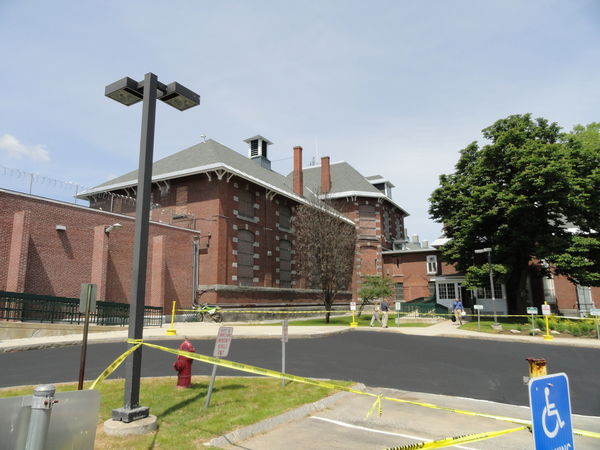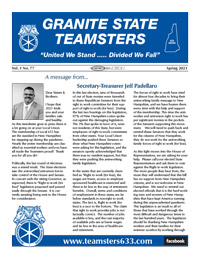
A Word from Jeff Padellaro
Local 633 Stronger Than Ever!
Over the past several years, Local 633 has continued to grow in membership. This growth may be attributed to the diverse backgrounds of our Business Agents, Field Representatives and Executive Board. Our recent successes include organizing school bus drivers, and public sector employees, which include law enforcement, town highway, … Continue reading →
United Parcel Service
Granite State Teamsters Newsletter
Bulletin Board
Local 633 Snapshots
Senator Shaheen meets with Unions to Discuss Labor Issues
Principal Officer Jeffrey Padellaro requested that President Kevin Foley and Local 633’s Political Consultant and Lobbyist, Dennis Caza, attend a meeting with Senator Jeanne Shaheen where many issues concerning our members were discussed. Topics discussed included the Butch Lewis Act of 2019, which has been referred to the Committee on … Continue reading →
2019 RECIPIENTS OF LOCAL 633 SCHOLARSHIPS
Principal Officer Jeffrey Padellaro announced the Local 633’s Scholarship Recipients for 2019. Jeff stated, “This is truly Teamsters supporting Teamsters. The Scholarship Fund is funded by voluntary donations from our members and other Local Teamster Unions throughout the country. College is an expensive investment and every little … Continue reading →
LOCAL 633 EXECUTIVE BOARD SWORN IN BY SEAN O’BRIEN
Sean O’Brien, President and Principal Officer of Local 25, attended our Local Monthly Memebership Meeting to address the membership and swear in Local 633’s Executive Board. Sean discussed the importance of getting our younger members involved in the Union to keep the fight for workers’ rights going. His message was … Continue reading →
David W. Laughton Honored at October Union Meeting
Principal Officer Jeff Padellaro honored the decades of dedicated service that David W. Laughton provided to the men and women of Local 633, and to the Teamsters Organization, at this month’s general membership meeting. Dave’s relationship with the Teamsters began in 1971 when he worked as a union truck driver … Continue reading →
In Memoriam
633 Posts Archive
- February 2024
- March 2023
- August 2022
- April 2021
- February 2021
- March 2020
- February 2020
- December 2019
- July 2019
- January 2019
- October 2018
- August 2018
- July 2018
- March 2018
- February 2018
- January 2018
- December 2017
- November 2017
- October 2017
- September 2017
- August 2017
- July 2017
- June 2017
- April 2017
- February 2017
- January 2017
- December 2016
- September 2016
- June 2016
- May 2016
- November 2015
- October 2015
- September 2015
- October 2014








